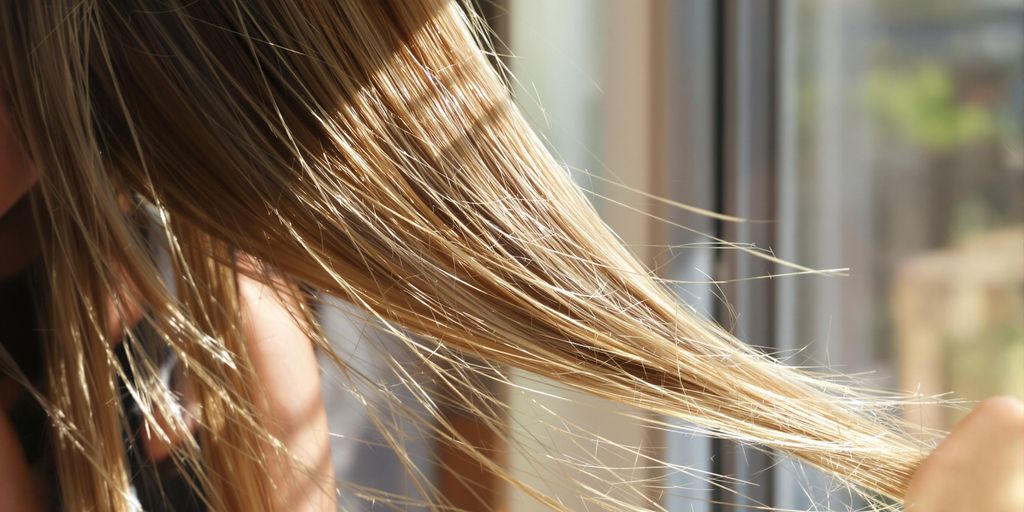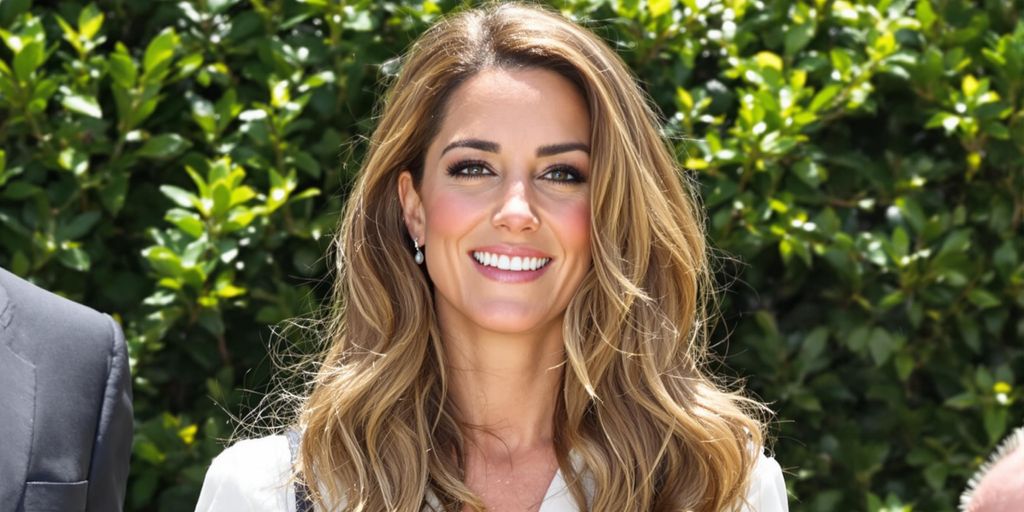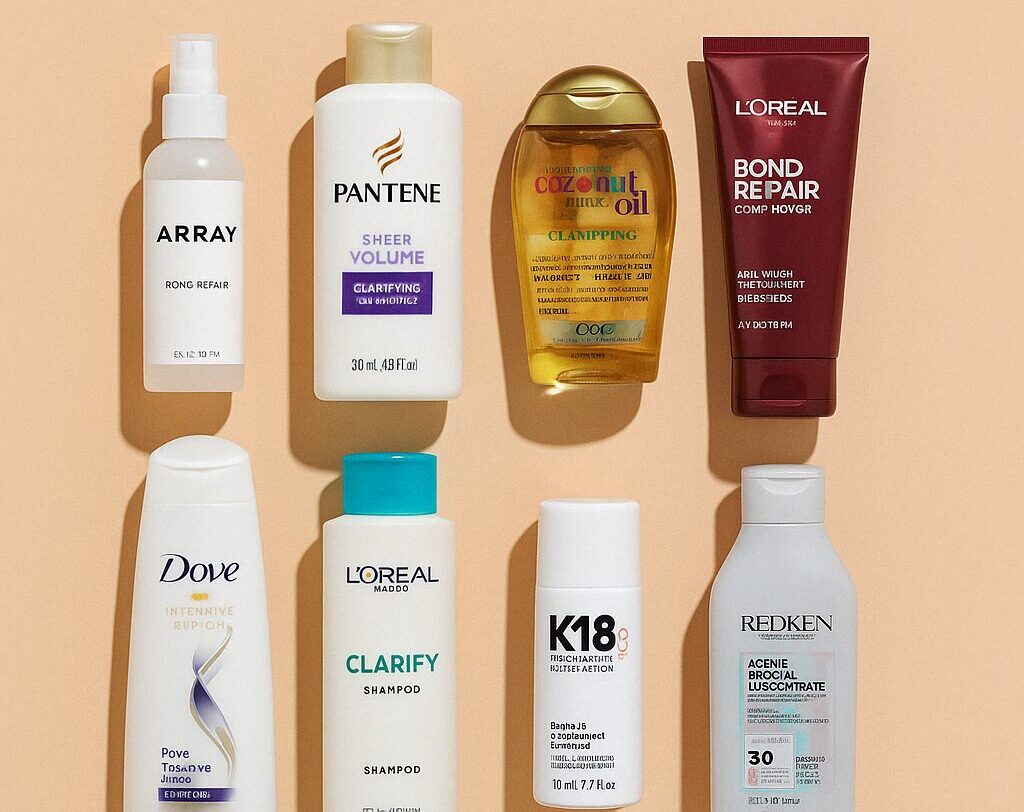If you’ve ever wondered about how quickly your hair grows, you’re not alone. Many people find themselves asking this question, especially after a bad haircut or when they’re trying to grow their hair out. Hair growth isn’t a simple process, and it varies from person to person. In this article, we’ll break down the basics of hair growth, what affects it, and how you can support healthy growth. Let’s get into the details!
Key Takeaways
- On average, hair grows about half an inch per month, but this can vary.
- Genetics, age, and nutrition all play a big role in how fast your hair grows.
- Hair goes through different phases: growth, transition, and resting.
- Common myths include the belief that cutting hair makes it grow faster.
- Healthy hair care practices can help promote better growth.
Understanding Hair Growth Rates
Average Growth Per Month
So, you’re probably wondering, just how fast does your hair actually grow? On average, hair grows about half an inch per month, which translates to around six inches per year. Of course, this is just an average. Some people might see a little less, others a bit more. It’s not an exact science, and many things can affect this rate. Think of it as a general guideline, not a strict rule. If you’re trying to grow out a bad haircut, patience is key!
Factors Affecting Growth Rates
Okay, so what messes with that average? Lots of things! Genetics play a big role – thanks, Mom and Dad! Your overall health is also a factor. If you’re not eating well or are stressed out, your hair might not grow as fast. Even your age can affect things; hair growth tends to slow down as you get older. And don’t forget about hormones; they can really throw a wrench in the works. Basically, a bunch of different things can influence how quickly your shorter strands are growing.
Variations Among Hair Types
Not all hair is created equal, and that includes growth rates. Different hair types can grow at different speeds. For example, some people find that their hair seems to grow faster than others, while others struggle to see any length. This can be due to the shape of the hair follicle, the way the hair curls, or even how easily it breaks. So, if you’re comparing your growth to someone else’s, remember that everyone’s hair is unique. It’s all about understanding what’s normal for your hair.
It’s important to remember that hair growth is a slow process. There’s no magic potion to make your hair grow inches overnight. Focus on taking care of your hair and body, and be patient. The length will come eventually.
Influencing Factors On Hair Growth
It’s kind of wild how many things can affect how fast your hair grows. It’s not just one thing; it’s a whole bunch of stuff working together (or against each other!). Let’s break down some of the big ones.
Genetics and Hair Growth
Okay, so your genes play a huge role in determining your hair growth rate. Think of it like this: your DNA is basically the blueprint for your hair. It decides how fast it grows, what color it is, and even how thick each strand is. You can’t really change your genes, but understanding them can help you manage your expectations. If everyone in your family has slow-growing hair, chances are you will too. It’s just how it is.
Impact of Age on Growth
Age definitely has an impact. When you’re younger, your hair tends to grow faster. As you get older, things slow down a bit. It’s just a natural part of aging. The hair follicles become less efficient, and the growth cycle shortens. You might also notice your hair getting thinner as you age. It’s all connected.
Role of Nutrition in Hair Health
What you eat seriously affects your hair. If you’re not getting enough of the right nutrients, your hair will suffer. Think of your hair as a plant. If you don’t water it and give it sunlight, it won’t grow well. Same goes for your hair. You need to feed it the right stuff from the inside out.
Eating a balanced diet is super important for healthy hair growth. Make sure you’re getting enough protein, vitamins, and minerals. Things like iron, zinc, and biotin are especially important. If you’re not getting enough of these nutrients, your hair might become weak, brittle, and slow-growing.
Here’s a quick list of things to keep in mind:
- Eat plenty of protein: Hair is made of protein, so you need to make sure you’re getting enough in your diet.
- Get your vitamins: Vitamins A, C, D, and E are all important for hair health.
- Don’t forget minerals: Iron, zinc, and selenium are crucial for hair growth.
The Hair Growth Cycle Explained
Okay, so you’re probably wondering how your hair actually grows, right? It’s not just some magical process. It’s a cycle, a series of phases that each hair follicle goes through. Understanding this cycle can really help you figure out why your hair is doing what it’s doing, and what you can do to help it along. Let’s break it down.
Anagen Phase: The Growth Phase
This is where the magic happens. The anagen phase is the active growth phase of your hair. Think of it as the engine that keeps your hair growing longer and stronger. During this phase, the cells in the root of your hair are dividing rapidly, creating new hair and pushing the old hair out. This phase can last for years – anywhere from two to seven years, depending on genetics and other factors. The longer your anagen phase, the longer your hair can potentially grow. It’s also worth noting that about 90% of your hair is in this phase at any given time. If you’re looking to boost your hair’s growth potential, focusing on extending this phase is key. Consider using hair growth products to support this phase.
Catagen Phase: The Transition Phase
After the anagen phase, your hair enters the catagen phase. This is a short, transitional phase that lasts about 2-3 weeks. During this time, the hair follicle shrinks, and growth slows down significantly. The hair detaches from its blood supply, essentially preparing to enter the resting phase. Only a small percentage of your hair is in this phase at any given time. It’s like a brief pause before the next act.
Telogen Phase: The Resting Phase
The telogen phase is the resting phase. During this phase, the hair follicle is completely inactive. The hair remains in the follicle but isn’t growing. This phase typically lasts around three months. After the telogen phase, the hair follicle re-enters the anagen phase, and a new hair begins to grow, pushing the old hair out. It’s normal to shed some hair during this phase – about 50-100 hairs a day. However, excessive shedding can be a sign of an issue.
It’s important to remember that each hair follicle operates independently. This means that some follicles might be in the anagen phase while others are in the telogen phase. This staggered cycle ensures that you don’t lose all your hair at once. Factors like stress, diet, and overall health can influence the duration and health of each phase.
Common Myths About Hair Growth
Does Cutting Hair Make It Grow Faster?
Okay, let’s get this one straight. Cutting your hair doesn’t actually make it grow faster. It just seems that way. When you trim split ends, you’re getting rid of the damaged part of the hair shaft. This prevents breakage from traveling up the hair, which can make your hair appear shorter and thinner over time. So, while a trim won’t speed up growth at the root, it will improve the overall health and appearance of your hair, making it seem like it’s growing faster because it’s not breaking off as much. Think of it like pruning a plant – you’re encouraging healthier growth, not necessarily faster growth.
Do Supplements Really Help?
Supplements for hair growth are a HUGE market, and it’s easy to get sucked in. The truth is, they can help, but only if you’re actually deficient in the vitamins and minerals they provide. Popping biotin pills when you already have enough biotin in your system isn’t going to magically give you Rapunzel-like locks.
Here’s the deal:
- Biotin: Good if you’re deficient, otherwise, probably won’t do much.
- Vitamin D: Important for overall health, and deficiencies can contribute to hair loss.
- Iron: Low iron levels are a common cause of hair loss, especially in women.
Before you start throwing money at supplements, it’s a good idea to talk to your doctor and get your levels checked. You might be surprised to find out you’re not deficient in anything, and the money would be better spent on a good hair care system or a healthy diet.
The Truth About Hair Products
So many products promise to make your hair grow faster, longer, and stronger. And while some products can improve the health of your hair, making it less prone to breakage and therefore seem longer, very few can actually speed up the rate at which your hair grows from the scalp.
Think about it this way: products can moisturize, strengthen, and protect your hair, but they can’t change your genetics or the basic biology of your hair follicles. Look for products that:
- Minimize breakage
- Add moisture
- Protect from heat damage
Ultimately, healthy hair is the goal, and that comes from a combination of good products, a healthy diet, and gentle handling. Don’t fall for the hype of products promising unrealistic results. Focus on preventing hair loss and maintaining the hair you have.
Promoting Healthy Hair Growth
So, you want longer, stronger hair? It’s not just about genetics; there’s a lot you can do to help your hair grow its best. Let’s talk about some practical ways to promote healthy hair growth.
Nutritional Tips for Strong Hair
What you eat really does affect your hair. A balanced diet is key. Think of your hair as a plant – it needs the right nutrients to thrive. Make sure you’re getting enough protein, vitamins, and minerals.
Here’s a quick rundown:
- Protein: Hair is mostly protein, so eat plenty of lean meats, beans, and eggs.
- Vitamins: Biotin, Vitamin D, and Vitamin E are all important. Consider a supplement if you’re not getting enough from your diet, but talk to your doctor first.
- Minerals: Iron and zinc are crucial for hair growth. Leafy greens and nuts are good sources.
It’s easy to fall into the trap of thinking that one magic food will solve all your hair problems. But really, it’s about consistently eating a variety of healthy foods. Think of it as building a strong foundation for your hair to grow on.
Best Practices for Hair Care
How you treat your hair matters a lot. Harsh chemicals and rough handling can damage your hair, slowing down growth and causing breakage.
Here are some things to keep in mind:
- Be gentle: When you brush your hair, use a wide-tooth comb and start from the ends, working your way up. Avoid pulling or tugging.
- Use the right products: Choose shampoos and conditioners that are designed for your hair type. Avoid products with harsh sulfates.
- Limit heat styling: Heat can damage your hair, so try to air dry whenever possible. If you do use heat, use a heat protectant spray.
Avoiding Damage to Promote Growth
Damage is the enemy of long hair. Split ends and breakage mean you’re constantly trimming your hair, which can make it seem like it’s not growing.
Here’s how to minimize damage:
- Get regular trims: Yes, it sounds counterintuitive, but trimming off split ends prevents them from traveling up the hair shaft and causing more damage.
- Protect your hair at night: Sleep on a silk or satin pillowcase to reduce friction and breakage.
- Avoid tight hairstyles: Tight braids, ponytails, and buns can put stress on your hair follicles, leading to hair loss.
Signs of Slow Hair Growth
Identifying Hair Growth Issues
Okay, so you’re wondering if your hair is growing slower than it should? It’s a common concern! First, let’s establish a baseline. Most people see about half an inch of growth per month. If you’re consistently seeing less, or what you do see is brittle and breaks easily, that’s a red flag. Keep an eye out for increased shedding, a widening part, or a hairline that seems to be receding. These are all potential signs that something’s up with your hair growth cycle.
- Noticeably less hair on your brush or in the shower drain than usual.
- Hair that feels thinner to the touch.
- A scalp that’s becoming more visible, especially at the crown or part line.
When to Consult a Specialist
Don’t play doctor Google! If you’ve noticed significant changes in your hair’s growth or overall health, it’s time to see a professional. A dermatologist or trichologist (a hair and scalp specialist) can properly diagnose the underlying cause. They can run tests to check for vitamin deficiencies, hormonal imbalances, or other medical conditions that might be affecting your hair. Early intervention is key to addressing hair growth issues effectively. They might suggest some expert-approved hair oils to help.
Understanding Hair Loss Conditions
Hair loss isn’t always just about slow growth; sometimes, it’s a sign of a specific condition. Androgenetic alopecia (male or female pattern baldness) is a common one, characterized by a gradual thinning of hair. Telogen effluvium, on the other hand, is often triggered by stress, illness, or hormonal changes, leading to excessive shedding. Alopecia areata is an autoimmune condition that causes patchy hair loss. Understanding which condition you might be dealing with is the first step toward finding the right treatment.
It’s important to remember that hair loss can be a symptom of an underlying health issue. Don’t hesitate to seek professional medical advice to rule out any serious conditions and get personalized recommendations for managing your hair health.
The Role of Hormones in Hair Growth
Hormones are like the body’s messengers, and they definitely have a say in how your hair grows. It’s not just about genetics or what shampoo you use; your hormones play a big part. When things are out of whack, you might notice changes in your hair’s growth, thickness, or even hair loss. It’s a complex system, but understanding the basics can help you take better care of your hair.
How Hormones Affect Growth Rates
Hormones can either speed up or slow down hair growth. For example, during pregnancy, many women experience thicker hair because of increased estrogen levels, which prolongs the growth phase. After childbirth, when hormone levels drop, that extra hair often falls out. Other hormones, like thyroid hormones, also play a role; if your thyroid is underactive or overactive, it can lead to hair loss or changes in hair texture. It’s all connected!
Impact of Stress on Hair Health
Stress isn’t just bad for your mental health; it can also mess with your hair. When you’re stressed, your body releases cortisol, which can disrupt the hair growth cycle. This can lead to a condition called telogen effluvium, where a large number of hair follicles enter the resting phase at the same time, causing shedding. Managing stress through exercise, meditation, or other relaxation techniques can help keep your hair healthy. You can also try beauty routines to help you relax.
Hormonal Changes and Hair Loss
Hormonal changes, especially during menopause, can significantly impact hair growth. As estrogen levels decline, hair can become thinner and more prone to breakage. Additionally, an increase in androgens (male hormones) can lead to hair loss, particularly in women who are genetically predisposed to it. Conditions like polycystic ovary syndrome (PCOS) can also cause hormonal imbalances that affect hair growth. If you’re experiencing significant hair loss, it’s a good idea to talk to a doctor to rule out any underlying hormonal issues.
It’s important to remember that everyone’s body is different, and what works for one person might not work for another. Pay attention to your body and any changes you notice in your hair. If you’re concerned, don’t hesitate to seek professional advice.
Here’s a quick look at how different hormones can affect hair:
| Hormone | Effect on Hair |
|---|---|
| Estrogen | Promotes growth, prolongs growth phase |
| Androgens | Can cause hair loss in predisposed individuals |
| Thyroid Hormones | Affects hair texture and growth rate |
| Cortisol | Disrupts hair growth cycle, causes shedding |
To promote healthy hair growth, consider these tips:
- Eat a balanced diet rich in vitamins and minerals.
- Manage stress through relaxation techniques.
- Avoid harsh hair treatments and styling products.
- Consult a doctor if you suspect a hormonal imbalance.
Wrapping It Up
So, there you have it! Hair growth isn’t a quick fix; it takes time and patience. On average, you can expect your hair to grow about half an inch a month, but remember, everyone’s different. Factors like genetics, age, and even your diet play a big role in how fast your hair grows. If you’re feeling frustrated with slow growth, try not to stress too much. Focus on keeping your hair healthy with good nutrition and proper care. And if you’re really worried about it, don’t hesitate to chat with a dermatologist. They can help you figure out what’s going on and what you can do about it. Just hang in there, and your hair will get there eventually!
Frequently Asked Questions
How much does hair grow in a month?
On average, hair grows about half an inch each month, which adds up to about six inches a year.
What factors affect hair growth?
Several things can affect how fast your hair grows, including genetics, age, and nutrition.
Does cutting hair make it grow faster?
No, cutting your hair does not make it grow faster. It can help keep it healthy and reduce split ends.
Can stress affect hair growth?
Yes, stress can cause hair to fall out or slow down its growth.
What can I do to promote healthy hair growth?
Eating a balanced diet, staying hydrated, and using gentle hair care products can help promote healthy hair.
When should I see a doctor about hair growth issues?
If you notice significant hair loss or slow growth, it’s best to consult a dermatologist for advice.





